#syriac union party
Text
Took me a while to find this article in English.
I eventually found it. Just took time.
Once again, fuck Erdogan and his cronies for this shit.
Slaughtering Assyrians, Armenians and other Christians (and other peoples too) in Syria.
Despicable crap!
Not defending Assad either btw. He’s a murdering chauvinist bastard.
Reblog the shit out of this.
#dougie rambles#political crap#news#Asia#middle east#assyria#bethnahrin#syrian civil war#syria#Syriac union party#rojava#north and east Syria#qamishli#leftism#turkey#fuck Erdogan#anti fascism#anti imperialism#Syrian democratic council#dawronoye#reblog this#reblog the shit out of this#assyrians#Assyrian people#armenians#fuck Assad
7 notes
·
View notes
Text
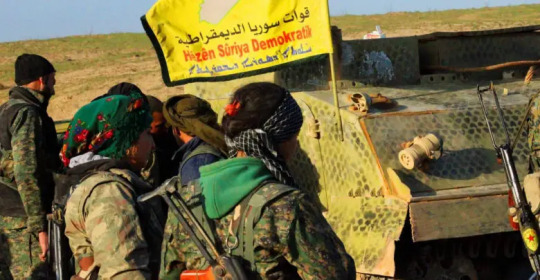
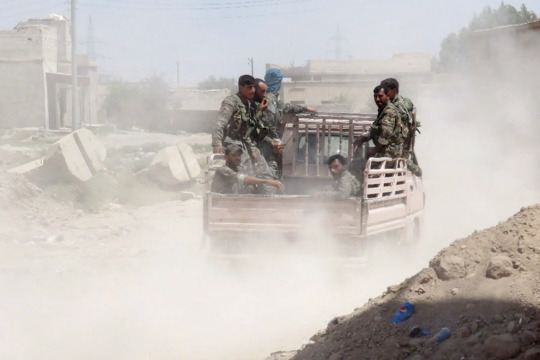
Kakistocracy #CorpMedia #Idiocracy #Oligarchs #MegaBanks vs #Union #Occupy #NoDAPL #BLM #SDF #DACA #MeToo #Humanity #DemExit #FeelTheBern
JinJiyanAzadi #BijiRojava Syriac Military Council plans imminent deployment to defend “our democratic project” in Efrin [UPDATES]
MFS has not been asked to return weapons supplied for the fight against ISIS…
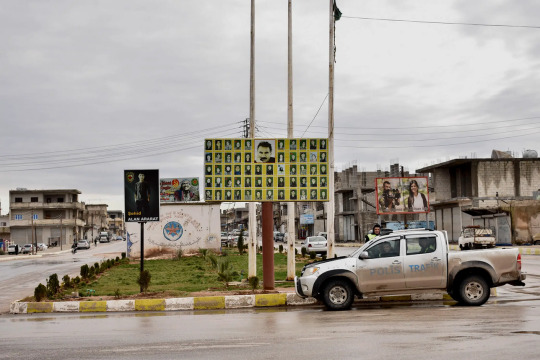
RELATED UPDATE: “This is our reward?”: After 4 years fighting ISIS, Syrian Kurds face uncertain future as US pivots to Turkey
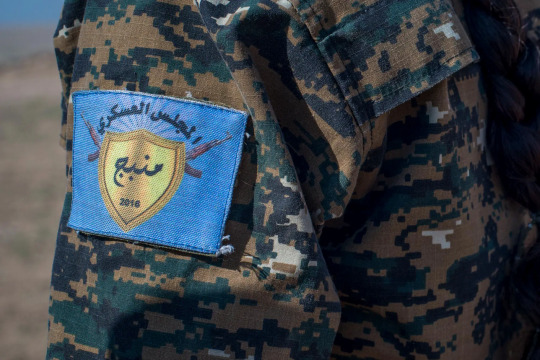
RELATED UPDATE: New Syrian military councils are the SDF’s latest push for decentralization
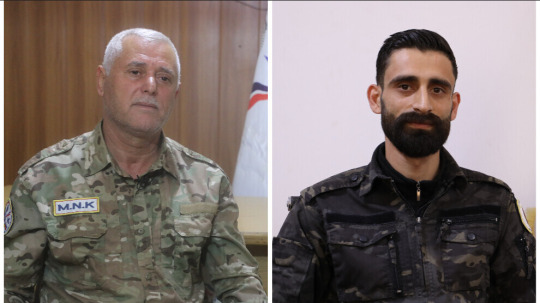
RELATED UPDATE: Threat of invasion against Rojava and the current situation in North-East Syria – VI
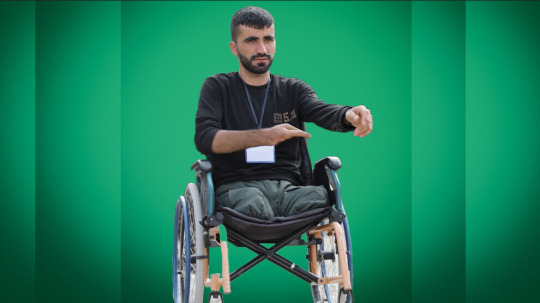
RELATED UPDATE: Siwar Rojdem: The struggle goes on
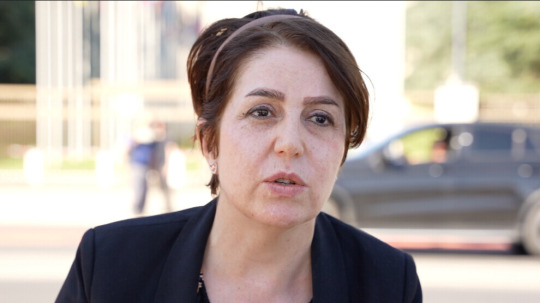
RELATED UPDATE: Xanim Eyo: Abdu11ah 0calan's freedom is our freedom
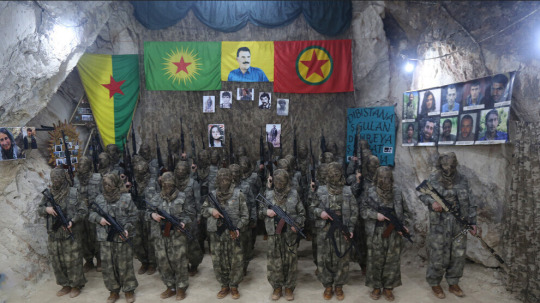
RELATED UPDATE: Guerrillas celebrate 15 August at graduation ceremony
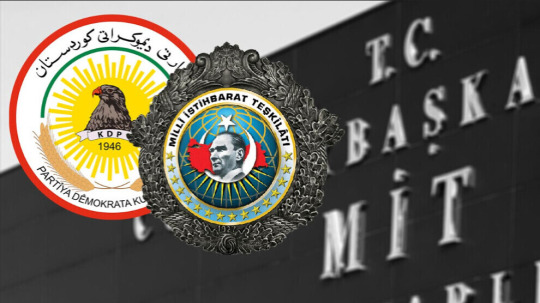
RELATED UPDATE: YXK protests KDP official Ewnî's call for murder of leading PKK members
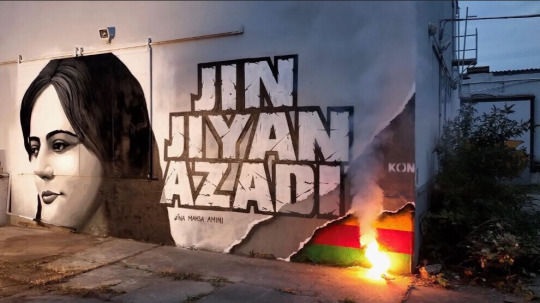
RELATED UPDATE: Jina Amini and 'Jin Jiyan Azadi' uprising nominated for Sakharov Prize
FURTHER READING:
#Kakistocracy#CorpMedia#Idiocracy#Oligarchs#MegaBanks vs#Union#Occupy#NoDAPL#BLM#SDF#DACA#MeToo#Humanity#DemExit#FeelTheBern#JinJiyanAzadi#BijiRojava
4 notes
·
View notes
Text
Five steps of Wikipedia for Monday, 18th December 2023
Welcome, dobrodošli, nuqneH, ողջու՜յն (voġčuyn) 🤗
Five steps of Wikipedia from "Female Protection Forces of the Land Between Two Rivers" to "1923 United Kingdom general election". 🪜👣

Start page 👣🏁: Female Protection Forces of the Land Between Two Rivers
"The Female Protection Forces of the Land Between Two Rivers was a small female battalion in Syria. Its members were trained in the north-eastern town of Al-Qahtaniyeh in Syria and were one of many small militia groups fighting ISIS in Syria. It was made up of Syriac Christian women...."
Step 1️⃣ 👣: 1966 Syrian coup d'état
"The 1966 Syrian coup d'état refers to events between 21 and 23 February during which the government of the Syrian Arab Republic was overthrown and replaced. The ruling National Command of the Arab Socialist Ba'ath Party were removed from power by a union of the party's Military Committee and the..."
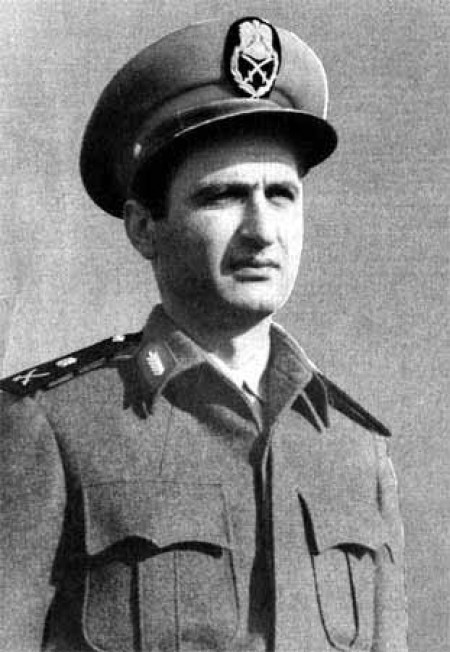
Image by Unknown authorUnknown author
Step 2️⃣ 👣: 1919 Egyptian Revolution
"The Egyptian Revolution of 1919 (Arabic: ثورة 1919, Thawra 1919) was a countrywide revolution against the British occupation of Egypt and Sudan. It was carried out by Egyptians from different walks of life in the wake of the British-ordered exile of the revolutionary Egyptian Nationalist leader Saad..."
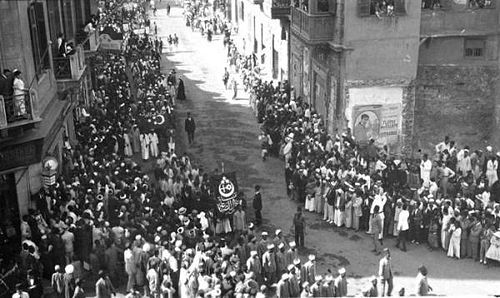
Image by Unknown authorUnknown author
Step 3️⃣ 👣: 10 Downing Street
"10 Downing Street in London is the official residence and office of the Prime Minister of the United Kingdom (formally in their capacity as the First Lord of the Treasury).Colloquially known as Number 10, the building is in Downing Street, just off Whitehall, in the City of Westminster, London. It..."
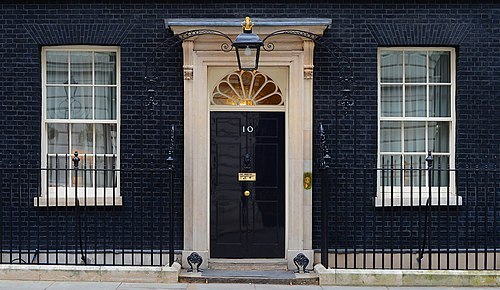
Image licensed under OGL v1.0? by Sergeant Tom Robinson RLC
Step 4️⃣ 👣: 1923 Imperial Conference
"The 1923 Imperial Conference met in London in the autumn of 1923, the first attended by the new Irish Free State. While named the Imperial Economic Conference, the principal activity concerned the rights of the Dominions in regards to determining their own foreign policy. Where previous Imperial..."
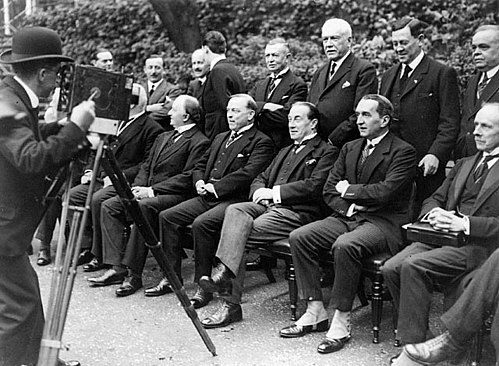
Image by Library and Archives Canada / PA-138871
Step 5️⃣ 👣: 1923 United Kingdom general election
"The 1923 United Kingdom general election was held on Thursday 6 December 1923. The Conservatives, led by Prime Minister Stanley Baldwin, won the most seats, but Labour, led by Ramsay MacDonald, and H. H. Asquith's reunited Liberal Party gained enough seats to produce a hung parliament. It is the..."
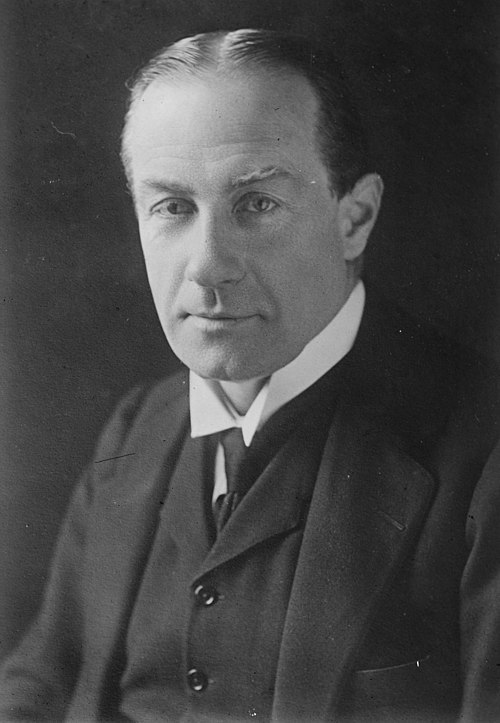
Image by Bain News Service
0 notes
Text
The Council of Chalcedon Re-Examined - A Review
Here Father V.C. Samuel has penned one of the most important theological and ecumenical works of the 20th century. This volume could rightly be called the magnum opus of an Indian Orthodox theologian, philosopher, and polyglot whose bibliography spans dozens of volumes. Reared in the Orthodox faith from his childhood in Kerala, he mastered the scriptures, the Syriac language, and the writings of Bar Hebraeus at a young age. Fr. Samuel was ordained a priest at 25 and would go on to earn some of the highest academic accolades in the fields of theology and philosophy. One of his most important works, his doctoral thesis titled “The Council of Chalcedon and the Christology of Severus of Antioch” provided the foundation for this book.
The author begins the book by providing details of the events leading up to and during the council of Chalcedon in 451. For the sake of brevity, we will not recount these events in this review. Instead, we will focus on the reunion efforts after the council as well as the Christological systems of the most important theologians of both parties. The most famous attempt at reunion was initiated by the emperor Zeno, who issued the henoticon in the spring of 482. This “pact of union” was a doctrinal statement that affirmed Nicea as the sole rule of faith and laid out a Christology which was acceptable to both Chalcedonians and anti-Chalcedonians.
The document initially achieved the reunion of all the major eastern sees. Acacius of Constantinople, Peter Mongus of Alexandria, and the exiled anti-Chalcedonian patriarch Peter Fullo of Antioch all assented to the henotikon. This reunion would prove to be short lived. Hyper-partisans on both sides of the divide would denounce their respective hierarchs as having compromised the true faith, with Pope Felix III excommunicating Acacius for his perceived abandonment of Chalcedon, while the anti-Chalcedonian acephalites in the east separated themselves from their hierarchs for what they believed to be unacceptable concessions made to the adherents of the council. Severus, the great anti-Chalcedonian patriarch of Antioch and the most prolific theologian on the one-nature side, himself associated with this movement at one point.
We also know that Severus, later in his ecclesiastical career, was recalled from his exile in the 530s to dialogue with the emperor Justinian, in an attempt to build bridges between both sides. This dialogue proved unsuccessful but possibly softened Justinian’s position towards the anti-Chalcedonians and might have even influenced the emperor’s decision to convoke the second council of Constantinople in 553. This council condemned the three chapters, affirmed Cyril’s 12 anathemas, and anathematized all those who refused to say “one of the Trinity suffered in the flesh.” These were all among the main points of contention for the detractors of Chalcedon that led them to reject the synod in the first place. In the decade following this council, unity parleys were held by both sides in Constantinople, with temporary reunion being briefly achieved on the pretext that upon reunion the two-nature side would drop the council of Chalcedon. When the Chalcedonians failed to hold up their end of the bargain, the reunion collapsed.
What’s fascinating to me is that even in late antiquity, in the heat of the moment and in the immediate aftermath of the council, there were moderates on both sides that were willing to acknowledge the merits of the other party’s position. When the onerous patriarch John Scholasticus tried to convince the imperial authorities to stir up persecutions against the anti-Chalcedonian Christians, the Emperor Tiberius II Constantine pressed the Constantinopolitan Patriarch whether the anti-Chalcedonians were heretics deserving of persecution, John answered “no” and conceded that the miaphysites were, in fact, fellow Christians. Tiberius then refused to persecute them on the basis that they were fellow Christians and that the empire was already exhausting its resources fighting the heathen barbarians.
Similarly, it is well known that the anti-Chalcedonian leaders opposed re-baptising, re-chrismating, and re-ordaining Chalcedonians who would transition to the anti-Chalcedonian Orthodox body. Severus would go as far as to describe those who did so as schismatics, referring to them as the “religion of the re-anointers.” We also know that certain Chalcedonian patriarchs, such as John the Faster and John the Merciful considered the anti-Chalcedonians fellow Christians and maintained they should remain unmolested by the imperial authorities. Efforts to reunite both camps lasted well into the 7th century, with the monothelite pact of Cyrus collapsing shortly after being signed by prominent anti-Chalcedonian leaders. The death knell of the reunion efforts being the Islamic invasions of North Africa and the Middle East which followed shortly after.
Father V.C. Samuel then devotes time to the Christologies of the various theologians of both parties, focusing particularly on Severus of Antioch, John of Damascus, and John the Grammarian. What I found interesting was the author’s dismissal of much higher profile theologians on the Chalcedonian side such as Leontius and the eminent theologian Maximus the Confessor, based on the claim that both held to an Origenist-influenced Christology. For our purposes, we will focus on comparing and contrasting the positions of Severus and John Damascene, since both figures are often considered the culmination of patristic theology in their respective ecclesiastical traditions.
What is striking about Damascene’s polemical writings about the anti-Chalcedonians is that he doesn’t seem to have access to any of Severus’ primary writings, instead reproducing passages from the corpus of the 6th century Aristotelian philosopher John Philoponus, who was condemned as a tritheist heretic by both the imperial Church as well as the anti-Chalcedonians. Damascene also seems to conflate the various Gaianite-Julianist factions with the “Severians.” This despite the fact that Severus and his allies went through great lengths to condemn and refute the Gaianites during his lifetime.
Damascene’s key Christological principles are as follows:
1. The word “nature” in the phrase “in two natures” means ousia
2. Christ’s manhood had no hypostasis of its own
3. Instead, it receives its existence from its unity with the Word
4. This is what is known as enhypostasia
5. The incarnate Christ possesses two wills and operations
With respect to point (2), Father V.C. Samuel considers this to be a major weakness in Damascene’s Christology. If Christ is “in two natures,” and “natures” is equated to ousia, and if Christ’s humanity is not a hypostasis (hypostasis being taken to mean “concrete reality”), does this mean that Christ is said to have only assumed human nature on the level of abstract reality? If so, John Damascene’s Christology seems to suffer the same flaw as that of John the Grammarian. Father Samuel maintains that Severus’ Christology avoids this pitfall by maintaining in no uncertain terms the integrity of the Lord’s human nature, will, and operation and positing that His humanity is hypostatic, but non-self-subsistent. That is, it receives its individuated existence from the hypostatic union with the Word. A comparison can be drawn between this and Damascene’s notion of enhypostasia, but because Damascene refuses to push the envelope further, falling short of calling Christ’s humanity hypostatic, he believes the Christology of Severus is superior with regards to this point. The author is by no means a hyperpartisan of Severus and is willing to criticize him when he feels necessary, however. Specifically, Father Samuel goes on record saying that Severus lacked comprehensive knowledge of Hellenistic philosophy.
Overall, this work is a masterpiece of scholarship and the first English work about the Christological controversies of the fifth and sixth centuries to be written by a priest of the anti-Chalcedonian Orthodox Churches. Father V.C. Samuel’s expansive research spans over 900 notes and references, and this volume has laid the foundation stone for the rapprochement efforts between the Chalcedonian and anti-Chalcedonian Orthodox communities that launched in the mid-20th century. The author’s work is comprehensive enough for the scholar and equally accessible to the layman with no prior background knowledge. That said, I have three minor criticisms of this book:
1. The author seems too dismissive of Leo’s tome, without factoring in developments in 20th century patristics scholarship which argue that Leo’s Christology is not substantially different from the Christologies of earlier Latin fathers. Though an anti-Chalcedonian myself, I do believe Leo’s tome should have been given fairer treatment.
2. I do wish Father Samuel had chosen to focus on the Christology of the great Byzantine philosopher and theologian Maximus the Confessor, rather than Severus’ interlocutor John the Grammarian. The Grammarian is a very obscure figure in ecclesiastical history while Maximus is a giant who is revered by the Chalcedonians at least as much as Severus is by the anti-Chalcedonians.
3. In the opening chapters of the book, when recounting the minutes of the council of Chalcedon, Father V.C. Samuel mentions how Dioscorus’ co-accused were charged with wrongfully deposing Flavian and forcing the dissident bishops at Ephesus 449 to sign “blank papers.” The accused bishops are then quoted as saying “we have sinned, forgive us!” Fr. Samuel seems to interpret this to mean that they are asking forgiveness for falsely accusing Dioscorus of doing so. I disagree, my reading of the minutes leads me to believe that they are asking forgiveness from the bishops at the council for being complicit in Flavian’s deposition.
That aside, this work is a must for anyone seeking to understand the history of the Christological controversies, the theology of the anti-Chalcedonian Orthodox, and the nuanced and sometimes esoteric differences between both parties.
0 notes
Text
The illegitimate butchering ruler #Bashar_Assad announced his strategy in dealing with the Syrian revolution with his speech before the People’s Assembly in 2012, where he said: “Every militant behind him is a family that protects him and a society embraces him, and therefore we are facing millions of local terrorists.” He is facing a “terrorist people” and he has the right to eradicate it And exterminate him by all possible means and ways! He has implemented and is still working on implementing this strategy !!!And we say, while we are the concerned parties, we have to firm our decision and unite the word of our revolutionaries, and we intend to bring down this criminal regime by all available means and options recognized by the Human Rights Charter by defending the freedom and dignity of the people and receiving its authority after the Alawite sectarian minority has passed for nearly fifty years while it is holding on to the stranglehold of the formed Syrian people. From Arabs, Kurds, Turkmen, Assyrians, Syriacs … etc.#Union of the forces of the Syrian revolution
0 notes
Text
Democratic Confederalism
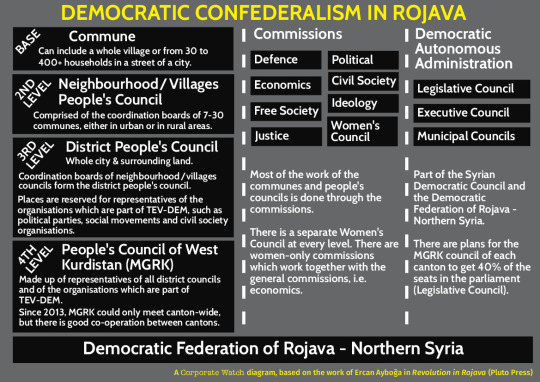
To explore the ideology of democratic confederalism, the official ideology of the Rojava peoples, it originated with the founder of the Kurdistan Workers Party (PKK) in Turkey, Abdullah Öcalan. Studying the works of famous libertarian socialist Murray Bookchin after being captured, the former Marxist-Leninist decided he favored a more democratic society though with similar ideas about distribution of wealth and resources as that of communism, he decided to invent a new ideology unique to the struggle of the Kurdish people and called it democratic confederalism. This was based off three libertarian socialist ideologies invented by Murray Bookchin, libertarian municipalism, communalism and social ecology, also with a strong emphasis on feminism. The resulting ideology, democratic confederalism, became the favored ideology in Rojava and the organization of political parties in their multi-party system showed an almost organic centralism in the sense that although there are many different political parties, most fall on the left wing of the spectrum, excluding the KNC. Though the power of the KNC, who showed popular at first, has seen a decline of popularity in favor of other left-wing political parties such the PYD and their TEV-DEM coalition members the Syriac Unity Party (Assyrian-interest party), Yekîtiya Star (a feminist political party), the Syrian Kurds’ Democratic Peace Party and the Kurdistan Liberal Union Party (both libertarian socialist parties believing in democratic confederalism and communalism).
0 notes
Photo
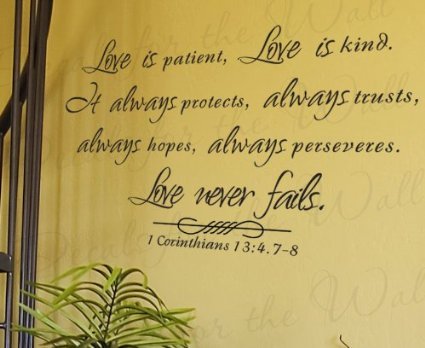
THE FIRST EPISTLE OF ST. PAUL, THE APOSTLE, TO THE CORINTHIANS - From The Latin Vulgate Bible
Chapter 1
PREFACE.
Corinth was the capital of Achaia, a very rich and populous city, where St. Paul had preached a year and a half, and converted a great many. See Acts xviii. 10. Now having received a letter from them, (chap. vii. 1.) and being informed of divers disputes and divisions among them, (chap. i. ver. 11.) he wrote this letter to them, and sent it by the same persons, Stephanas, Fortunatus, and Achaicus, who had brought him their letter, chap. xvi. 17. It was written about the year 56, not from Philippi, as it is commonly marked at the end of the Greek copies, but rather from Ephesus. The subject and main design of this Epistle was to take away the divisions among them about the talents and merits of those who had baptized and preached to them, and to settle divers matters of ecclesiastical discipline.
Chapter 1
He reproveth their dissensions about their teachers: the world was to be saved by preaching of the cross, and not by human wisdom or eloquence.
1 Paul, called to be an apostle of Jesus Christ, by the will of God, and Sosthenes a brother,
Notes & Commentary:
Ver. 1. Paul called to be an apostle. St. Paul had preached to the Corinthians, and had remained a long time with them, to instruct and confirm them in the faith. During his absence, the faithful of Corinth were divided into several parties, on occasion of some new teachers, who had come amongst them. (Calmet) --- It was to heal the wounds caused by these divisions, that the present epistle was written. (St. Thomas Aquinas; Haydock) --- And Sosthenes. There are various conjectures made concerning the person St. Paul here mentions. Some are of opinion that this Sosthenes is the same mentioned, Acts xviii. 17. who was beaten before the tribunal of Gallio, proconsul of Achaia, when St. Paul was carried before that magistrate. Eusebius says, that Sosthenes was one of the 72 disciples, and a different person from the one mentioned in Acts. Estius takes him to be St. Paul's secretary. The common opinion is, that he was a great sufferer for the faith at Corinth, and St. Paul here mentions him as a man worthy their imitation. (Calmet)
2 To the church of God that is at Corinth, to them that are sanctified in Christ Jesus, called to be saints, with all that invoke the name of our Lord Jesus Christ, in every place of theirs and ours;
Ver. 2. In every place of theirs and ours. Inasmuch as among Christians in all places there ought to be such an union in faith, and conformity of discipline, as if they were all in one place. (Witham)
3 Grace to you, and peace from God, our Father, and from the Lord Jesus Christ.
Ver. 3. No explanation given.
4 I give thanks to my God always for you, for the grace of God, that is given you in Christ Jesus:
Ver. 4. That is given you in, or by Christ Jesus.[1] Where we may take notice with St. Chrysostom for the understanding of other places, that in, is many times put for by or through.
Note 1:
Ver. 4. In Christo Jesu, en christo Iesou. St. Chrysostom, om. b. ora pos pollakou to en, anti tou di ou, estin.
5 That in all things you are made rich in him, in all speaking, and in all knowledge:
Ver. 5. Rich in him in all knowledge. The apostles never addressed any epistle, except to persons who had been previously converted to the faith. Nor is it reasonable to expect, that infidel and pagan nations, merely by reading the inspired writings, will be able, by the light that is in them, to elicit from the said book the truths of religion. Would they not be tempted to worship the wily serpent, that succeeded in deceiving Eve? and how will they know that this serpent is the devil? (Haydock)
6 As the testimony of Christ was confirmed in you:
Ver. 6. As the testimony of Christ, what Christ testified and taught was confirmed in you, that is, your faith in Christ hath been confirmed by those graces and gifts which you received from the Holy Ghost at your baptism, and when by imposition of hands you were confirmed by me, or some other bishop. (Witham)
7 So that nothing is wanting to you in any grace, waiting for the manifestation of our Lord Jesus Christ,
Ver. 7. No explanation given.
8 Who also will confirm you unto the end without crime, in the day of the coming of our Lord Jesus Christ.
Ver. 8. No explanation given.
9 God is faithful: by whom you are called unto the fellowship of his Son, Jesus Christ, our Lord.
Ver. 9. No explanation given.
10 Now I beseech you, brethren, by the name of our Lord Jesus Christ, that you all speak the same thing, and that there be no schisms among you: but that you be perfect in the same mind, and in the same judgment.
Ver. 10. &c. That there is no schisms....contentions, &c. To hinder these, was the chief design of this letter; one saying, I am of Paul, &c. each party bragging of their master by whom they had been baptized, and made Christians. I am of Apollo, the eloquent preacher, and I of Cephas, the head of the apostles, and of the whole Church; whilst others, the only party not to be blamed, contented themselves with saying, and I am of Christ. --- Is Christ divided? Is not your salvation, is not your justification in baptism, and all gifts from him? (Witham)
11 For it hath been signified unto me, my brethren, of you, by them who are of Chloe, that there are contentions among you.
Ver. 11. Of Chloe. It is worthy our observation, that St. Paul does not here mention any one person in particular, lest he might expose any one to the resentment of the rest, but mentions only in general terms the house of Chloe. (St. Chrysostom; Theophylactus)
12 Now this I say, that every one of you saith: I indeed am of Paul: and I am of Apollo: and I of Cephas: and I of Christ.
Ver. 12. Chloe was a Christian woman of Corinth. Apollo is the person mentioned, Acts xviii. 24. &c. Cephas is St. Peter, so called in the Syriac tongue. (Bible de Vence)
13 Is Christ divided? Was Paul crucified for you? or were you baptized in the name of Paul?
Ver. 13. Was Paul crucified for you? Though says St. Augustine brothers may die for brothers, yet the blood of no martyr is shed for the remission of a brother's sin. See also St. Leo the Great, serm. xii. de pass. Dom.
14 I give God thanks, that I baptized none of you, but Crispus and Caius:
Ver. 14. I give God thanks that I baptized none of you, but, &c. It is strange that Quakers should from hence pretend, that St. Paul condemned baptism, when he only tells them, he is glad they were baptized by some other, rather than by him, lest they should say, they were baptized in his name, or think that baptism had a greater virtue, when given by a minister of greater sanctity; whereas it is Christ only, who is the chief minister, who gives grace in baptism, and in the other sacraments. This makes him say, was Paul crucified for you, &c. He tells them the occasion why he baptized few, because he was sent chiefly to preach and to be their apostle, whereas other inferior ministers were employed in baptizing. (Witham)
15 Lest any should say that you were baptized in my name.
Ver. 15. No explanation given.
16 And I baptized also the household of Stephanus: besides, I know not whether I baptized any other.
Ver. 16. No explanation given.
17 For Christ sent me not to baptize, but to preach the gospel: not in wisdom of speech, lest the cross of Christ should be made void.
Ver. 17. &c. Not to baptize. That is, the first and principal intent, in my vocation to the apostleship, was to preach the gospel, before the Gentiles, and kings, and the children of Israel. (Acts chap. ix. 15.) To baptize is common to all, but to preach is peculiarly the function of an apostle. (Estius; Menochius; Grotius) --- I was sent to preach the gospel, not with wisdom of speech, and as he says in the next chapter, (ver. 13.) not in the persuasive words of human wisdom, &c. The Spirit of God, which guided the thoughts and pen of St. Paul, and the other sacred writers, inspired them to deliver the gospel-truths with great simplicity, without the ornaments of an artificial human eloquence, lest the cross of Christ should be made void, lest the conversion of the world might be attributed to any human means, and not to the power of God, and of Christ crucified. (Witham)
18 For the word of the cross, to them indeed that perish, is foolishness; but to them who are saved, that is, to us, *it is the power of God.
Ver. 18. For the word of the cross. That is, the preaching that the Son of God, both God and man, died nailed to an infamous cross, is folly, is looked upon as ridiculous and incredible, by all obstinate unbelievers that perish: but it is received as the work of God, and an effect of his divine power, by such as are saved. (Witham)
19 For it is written: I will destroy the wisdom of the wise: and the prudence of the prudent I will reject.
20 Where is the wise? Where is the scribe? Where is the disputer of this world? Hath not God made foolish the wisdom of this world?
Ver. 19-20. I will destroy the wisdom of the wise. I will confound the false and mistaken wisdom of the great and wise philosophers, of the learned doctors or scribes, of the curious searchers of the secrets of nature. --- Hath not God made foolish the wisdom of this world, by the means he hath made use of to convert, and save the world, particularly by sending his only Son to die upon a cross? the preaching of which seems a folly, &c. only they who are called, believe Christ, though crucified, to be the power and wisdom of God. (Witham)
21 For seeing that in the wisdom of God the world by wisdom knew not God: it pleased God by the foolishness of preaching to save them that believe.
Ver. 21. For seeing that in the wisdom of God, &c. That is, by the works of the divine wisdom, by the visible creatures of this world, and the effects of his providence, the world had not wisdom, or was not wise enough, to know and worship God, as they might, and ought to have done: it pleased God to shew his power by the foolishness of preaching, by sending illiterate men to preach a God crucified, which to human wisdom seems a folly, and to save men by this belief. (Witham) --- The gospel, which I announce to you, though it appears folly to the vain philosopher, is the wisdom of God; and whilst it exhibits the picture of a crucified God, and teaches us the mortification of our senses, promises a happiness in the next life, not to be found in this. (Vat. Grot. Tir. Just. [Vatable?; Grotius?; Tirinus?; St. Justin Martyr?])
22 For both the Jews require signs, and the Greeks seek after wisdom:
23 But we preach Christ crucified, to the Jews a stumbling-block, and to the Gentiles, foolishness:
24 But to them that are called, both Jews, and Greeks, Christ the power of God, and the wisdom of God.
25 For the foolishness of God, is wiser than men: and the weakness of God, is stronger than men.
Ver. 22-25. The Jews, in the mean time, ask for miracles, such as God formerly wrought in their favour, and the Greeks, or the Gentiles, to be converted, expect from us, what they would look upon as the highest points of human wisdom and knowledge; for that which appeareth the foolishness of God, is wiser than men, and able to confound the highest human wisdom; and that which appeareth weakness of God, is stronger than men, who cannot hinder God from converting the world, by means and methods, that seem so disproportioned to this his design. (Witham) --- Foolishness. That is to say, what appears foolish to the world in the ways of God, is indeed more wise: and what appears weakness, is indeed above all the strength and comprehension of man. (Challoner)
26 For see your vocation, brethren, that not many wise according to the flesh, not many mighty, not many noble:
27 But the foolish things of the world hath God chosen, that he may confound the wise: and the weak things of the world hath God chosen, that he may confound the strong:
28 And the mean things of the world, and the things that are contemptible, hath God chosen, and things that are not, that he might destroy the things that are:
Ver. 26-28. Vocation, is here used for the called, as Romans iii. 30. circumcision for the circumcised, (Romans xi. 7.) election for the elected. (Bible de Vence) --- Consider your manner of being called; not many, hitherto, of those who have believed, or of those who have preached the gospel, are wise according to the flesh, or as to worldly wisdom; and in the esteem of men, not many mighty, not many noble. God hath chosen such as are looked upon as illiterate, without power, without riches, without human wisdom, to confound the great and wise men: He hath chosen the things that are not, that is, says St. Chrysostom, men reputed as nothing, of no consideration, to confound, to destroy, to make subject to him, and to the gospel, men who had the greatest worldly advantages, that no flesh, no men how great, wise, rich, or powerful soever, might glory in his sight, or attribute their call, and their salvation to their own merits. --- From him you are in Christ Jesus brought to believe in him, who is made to us wisdom, acknowledged to be the wisdom of his eternal Father, by whom we have been justified, sanctified, redeemed. We have nothing of ourselves to boast of, and can only glory in the Lord. (Witham) --- And the mean things. In the beginning of Christianity, it was frequently objected to the Christians, that they had none but men of the basest extraction. The emperor Julian likewise made the Catholics the same reproach. (Grotius) --- But this objection was not founded; for we find many persons of consideration mentioned in the Scriptures, who had embraced Christianity. Witness, ver. 1. of this chap., Sosthenes, the head of the synagogue at Corinth, and some in the very palace of Cæsar.
29 That no flesh should glory in his sight.
Ver. 29. Glory in his sight. God wished it to be known, that the establishment of his Church was not the work of human wisdom or power, but of the omnipotent power of his divinity. (Calmet)
We may here admire, (ver. 1.) the happiness of those who, like St. Paul, are called to the sacred ministry, not through human respects, nor by any influence of parents, but by the vocation of heaven. --- Ver. 2. We have here the model and origin of all future pastoral letters. --- Ver. 3. &c. he gives thanks to God for past favours, and prays for a continuation of graces and blessings. --- Ver. 10. He begs that there be no schisms found among them, but that unanimity of sentiment and disposition may reign among them, certain and unequivocal marks of truth. --- Ver. 12. &c. He shews that both pastors and flocks should look up to God, as the only source of truth and grace; that it is a crying injustice to withdraw any share of our heart and confidence from God, to fix it on any thing that is not God; as it is to attach ourselves to the ministers of truth, and not to the Truth itself. Therefore, concludes St. Paul, though the Jews call for miracles, and the Gentiles lean upon worldly wisdom, Christians must seek their strength and success in the weakness of the cross, and their glory in the ignominy of Christ crucified, to whom alone be all the honour and glory for ever and ever. Amen.
30 But of him you are in Christ Jesus, who is made to us wisdom from God, and justice, and sanctification, and redemption:
Ver. 30. No explanation given.
31 That, as it is written: He that glorieth, may glory in the Lord.
Ver. 31. No explanation given.
3 notes
·
View notes
Text
Just leaving this here.
Yeah the DEM Party is one of the few parties in Turkey I’d trust.
Feel free to reblog.
#dougie rambles#news#political crap#syria#syrian civil war#Syrian Democratic council#assyria#bethnahrin#syriac union party#dawronoye#leftism#decolonization#anti imperialism#anti fascism#fuck Erdogan#bethnahrin national council#middle east#levant#turkey#European Syriac union#elections#assyrians#Assyrian people#switzerland
0 notes
Photo
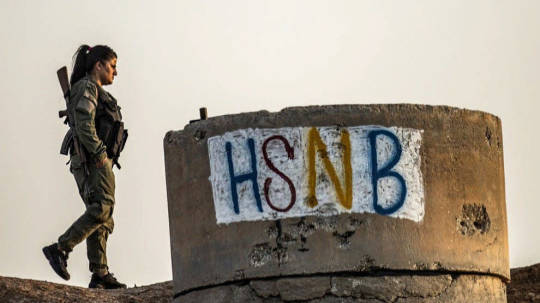
#CorpMedia #Idiocracy #Oligarchs #MegaBanks vs #Union #Occupy #NoDAPL #BLM #SDF #DACA #MeToo #Humanity #DemExit #FeelTheBern
Five years of Bethnahrin Women's Protection Forces [UPDATES]
https://anfenglish.com/women/five-years-of-bethnahrin-women-s-protection-forces-46315
Five years ago, a few dozen women in northeast Syria founded the first Christian women's combat association HSNB. In the meantime, female defense forces are trained at three military academies...
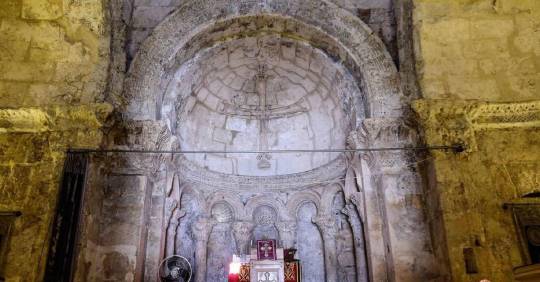
RELATED UPDATE: Syriac church attacked in southeastern Turkey, soldiers among suspects
https://ahvalnews.com/southeast-turkey/syriac-church-attacked-southeastern-turkey-soldiers-among-suspects
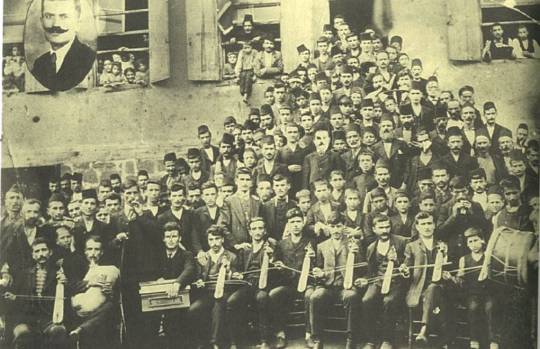
RELATED UPDATE: 102nd anniversary of Greek Pontic Genocide
https://m.bianet.org/english/human-rights/244292-102nd-anniversary-of-greek-pontic-genocide
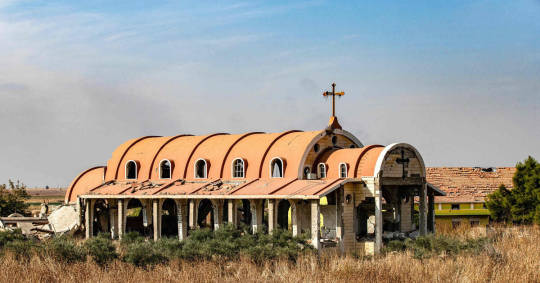
RELATED UPDATE: Assyrian Syriac powers looking to unify positions for future of Syria
https://www.al-monitor.com/originals/2021/04/assyrian-syriac-powers-looking-unify-positions-future-syria
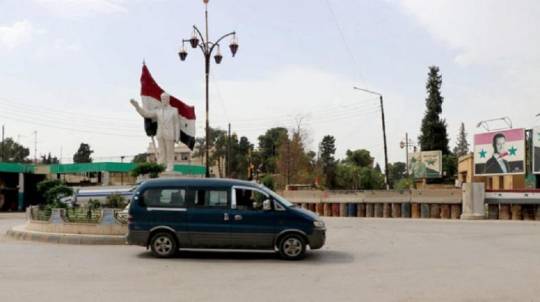
RELATED UPDATE: Syrian Opposition Calls for Boycott of Presidential Elections
https://english.aawsat.com/home/article/2991396/syrian-opposition-calls-boycott-presidential-elections
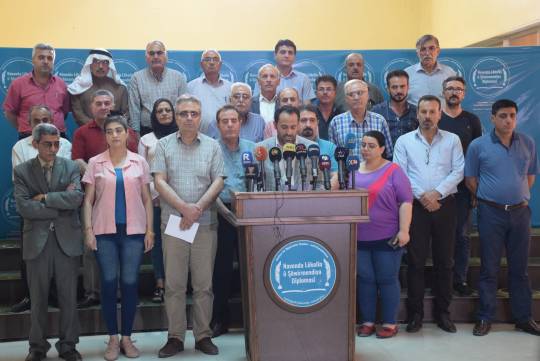
RELATED UPDATE: Political parties: The Turkish occupation targets all democratic powers
http://www.hawarnews.com/en/haber/political-parties-the-turkish-occupation-targets-all-democratic-forces-h24847.html
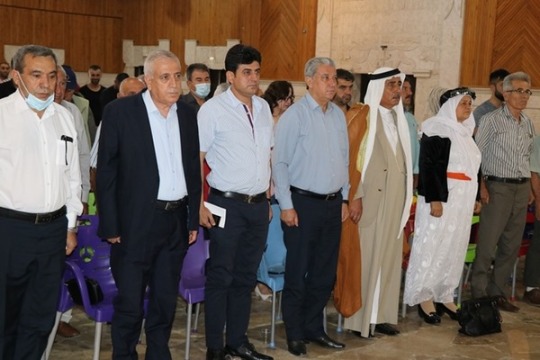
RELATED UPDATE: Founding conference of "ADS held in Qamishlo
http://hawarnews.com/en/haber/founding-conference-of-ads-held-in-qamishlo-h24862.html
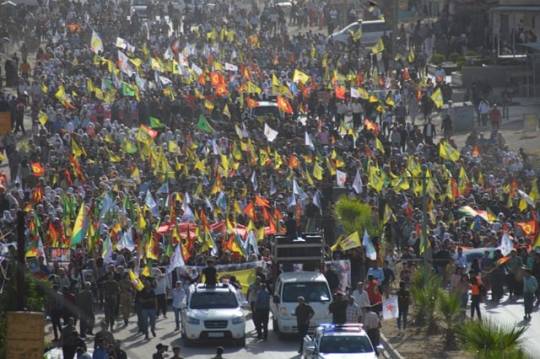
RELATED UPDATE: With massive crowds... Dignity March against Occupation and Betrayal begins
http://www.hawarnews.com/en/haber/with-massive-crowds-dignity-march-against-occupation-and-betrayal-begins-h25144.html
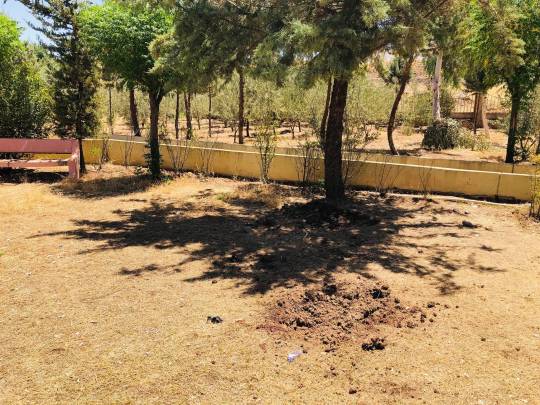
RELATED UPDATE: Explosion kills one in Halabja: police
https://www.rudaw.net/english/kurdistan/140620211
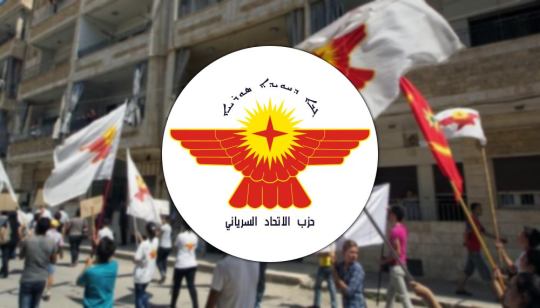
RELATED UPDATE: Syriac Union Party in Syria calls for international pressure on Turkey to recognize 1915 Sayfo Genocide
https://syriacpress.com/blog/2021/06/15/syriac-union-party-in-syria-calls-for-international-pressure-on-turkey-to-recognize-1915-sayfo-genocide/
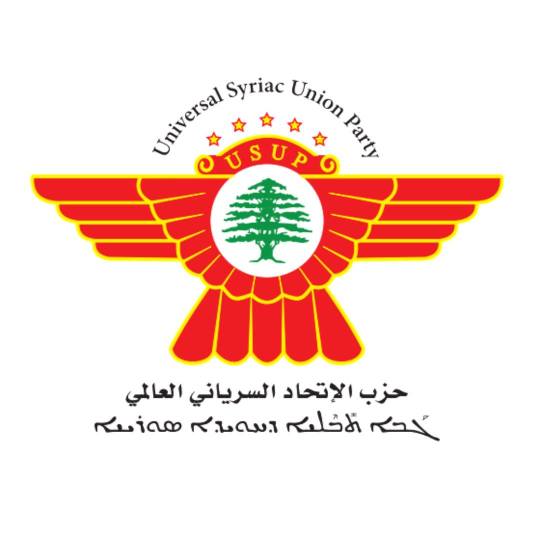
RELATED UPDATE: Turkey repeats ethnic cleansing similar to what happened in Seyfo
http://www.hawarnews.com/en/haber/turkey-repeats-ethnic-cleansing-similar-to-what-happened-in-seyfo-h25237.html
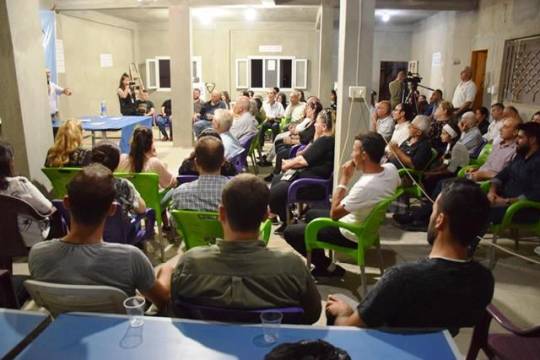
RELATED UPDATE: Tirbe Spiye Syriacs commemorate Seyfo massacres victims
http://www.hawarnews.com/en/haber/tirbe-spiye-syriacs-commemorate-seyfo-massacres-victims-h25243.html
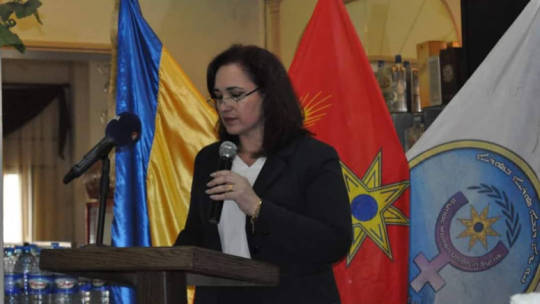
RELATED UPDATE: Syriac Union Party Co-Chair Goreya: “We, as Syriac women and as a party, have the responsibility to demand our rights and to recognize the Sayfo as well”
https://syriacpress.com/blog/2021/06/18/syriac-union-party-co-chair-goreya-we-as-syriac-women-and-as-a-party-have-the-responsibility-to-demand-our-rights-and-to-recognize-the-sayfo-as-well/
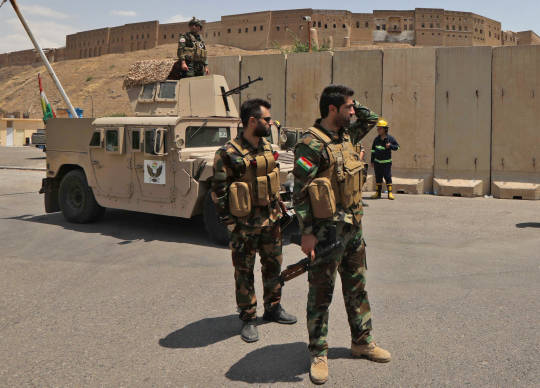
RELATED UPDATE: Amnesty International slams Kurdish clamp-down on dissent
https://thearabweekly.com/amnesty-international-slams-kurdish-clamp-down-dissent
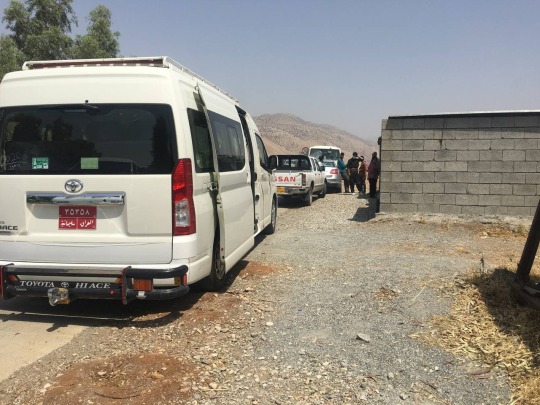
RELATED UPDATE: Southern Kurdistan authorities obstruct Human Shields Activity
http://www.hawarnews.com/en/haber/southern-kurdistan-authorities-obstruct-human-shields-activity-h25342.html
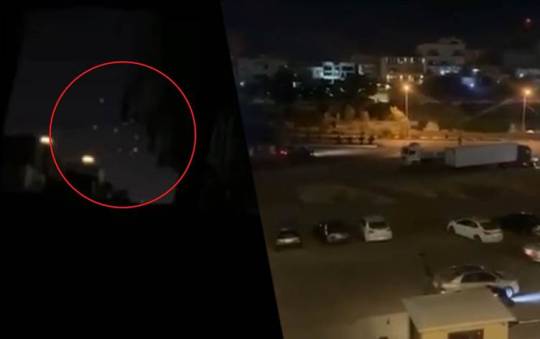
RELATED UPDATE: Shootout between security forces injures several in Sulaimani
https://www.rudaw.net/english/kurdistan/22062021
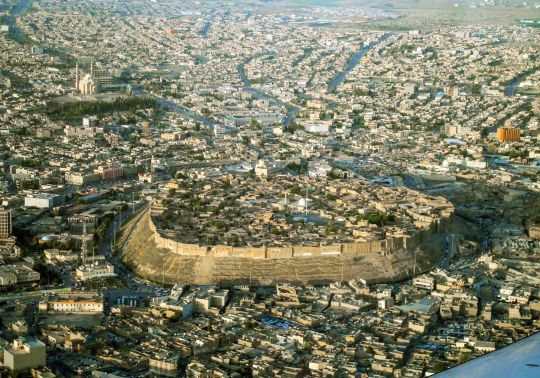
RELATED UPDATE: Amnesty: Kurdish Iraq Must Stop Harassing Journalists, Activists
https://www.occrp.org/en/daily/14697-amnesty-kurdish-iraq-must-stop-harassing-journalists-activists

RELATED UPDATE: Official’s son played part in resolving Monday night shootout that injured 11
https://www.rudaw.net/english/kurdistan/220620214
2 notes
·
View notes
Text
Tariq Aziz
Tariq Aziz
Tariq Aziz (Arabic: طارق عزيز Ṭāriq ʿAzīz, né: Mikhail Yuhanna (Syriac: ܡܝܟܐܝܠ ܝܘܚܢܢ Mīḵāil Yōḥānon, Arabic: ميخائيل يوحنا Mīḫāʾīl Yūḥannā baptized Manuel Christo; born 28 April 1936) was the Foreign Minister (1983 – 1991) and Deputy Prime Minister (1979 – 2003) of Iraq and a close advisor of former President Saddam Hussein. Their association began in the 1950s when both were activists for the then-banned Arab Socialist Ba'ath Party. He is an ethnic Assyrian but an Arab Nationalist and a member of the Chaldean Catholic Church.
Because of security concerns, Hussein rarely left Iraq, so Aziz would often represent Iraq at high-level diplomatic summits. What the United States wanted, he averred, was not "regime change" in Iraq but rather "region change". He summed up the Bush Administration's reasons for war against Iraq tersely: "oil and Israel."[1]
Since surrendering to American forces on 24 April 2003, Aziz has been held in prison, first by American forces and subsequently by the Iraqi government. He is currently in prison in Camp Cropper in western Baghdad.[2] He was acquitted of some charges on 1 March 2009 following a trial, but was sentenced to 15 years on 11 March 2009 for the executions of 42 merchants found guilty of profiteering in 1992 and another 7 years for relocating Kurds.[3] On 26 October 2010, he was sentenced to death by the Iraqi High Tribunal, and this has sparked regional and international condemnation from Iraqi bishops and other Iraqis, the Vatican, the United Nations, the European Union and the human rights organization Amnesty International, as well as various governments around the world, such as Russia.[4] On 28 October 2010, it was reported that Tariq Aziz, as well as 25 fellow prison inmates, had begun a hunger strike to protest the fact that they could not receive their once-monthly visit from friends and relatives, which was normally set for the last Friday of each month.[5]
On 17 November 2010, it was reported that Iraqi President Jalal Talabani declared that he would not sign Aziz's execution order.[6]
Early life and education
Aziz was born on 28 April 1936 in Tel Keppe,[7] to an Assyrian family and is a member of the Chaldean Catholic church. Aziz studied English at Baghdad University, and later worked as a journalist, before joining the Ba'ath Party in 1957. In 1963, he was editor of the newspaper Aj-Jamahir (al-Jamaheer) and al Thawra, the newspaper of the Ba'ath party.[8]
In April 1980 he survived an Iranian-backed assassination attempt carried out by members of the Islamic Dawa Party. In the attack, members of Islamic Dawa Party threw a grenade at Aziz in central Baghdad. The attack killed several people.[9] It was among the casus belli of the Iran–Iraq War.
Family
His son Ziad Aziz lives in Jordan with his wife and four children, and Tariq Aziz's two sisters. Tariq Aziz's wife and another son live in Yemen.[10]
He began to rise through the ranks of Iraqi politics after the Ba'ath party came to power in 1968. He served as a member of the Regional Command, the Ba'ath Party's highest governing organization from 1974 to 1977, and in 1977 became a member of Hussein's Revolutionary Command Council.
In 1979, Aziz became Deputy Prime Minister of Iraq, and worked as a diplomat to explain Iraq's policies to the world. In April 1980, Iranian suporters attempted to assassinate senior Iraqi officials, including Aziz. Such attempts were one of the motives of the Iran Iraq war, which began the same year.[11]
When Iraq invaded Kuwait in 1990, Tariq Aziz served as the international spokesman in support of the military action. He claimed the invasion was justified because Kuwait's increased oil production was harming Iraqi oil revenues. He condemned Arab states for "subservience to the United States' hegemony in the Middle East and their support for punitive sanctions."[12] On 9 January 1991, Aziz was involved in the Geneva Peace Conference which included the United States Secretary of State, James Baker. The goal of the meeting was to discuss a possible resolution to the occupation of Kuwait.
In 2001 Aziz's son Ziad was arrested for corruption. In January 1999 Ziad was accused by his former mistress of using the official position of his father (mostly his cars) to facilitate smooth crossing of the Jordanian border with contraband, attempted murder on her husband and family, as well as for corruption involving French and Indonesian companies. He was arrested and sentenced to 22 years in prison. Tariq Aziz resigned from his post but Hussein did not accept his resignation. Ziad was eventually released from prison when Hussein decided that Aziz had paid enough for his mistakes.
On 14 February 2003, Aziz reportedly had an audience with Pope John Paul II and other officials in Vatican City, where, according to a Vaticanstatement, he communicated "the wish of the Iraqi government to co-operate with the international community, notably on disarmament". The same statement said that the Pope "insisted on the necessity for Iraq to faithfully respect and give concrete commitments to resolutions of the United Nations Security Council, which is the guarantor of international law".[13]
Detention
He voluntarily surrendered to American forces on 24 April 2003, after negotiations had been mediated by his son.[16] His chief concern at the time was for the welfare of his family. At the time of his surrender, Aziz was ranked number 43 out of 55 in the American list of most-wanted Iraqis despite a belief "he probably would not know answers to questions like where weapons of mass destruction may be hidden and where Saddam Hussein might be."[16]
Before the war, Aziz claimed he would rather die than be a U.S. prisoner of war: "Do you expect me, after all my history as a militant and as one of the Iraqi leaders, to go to an American prison – to go to Guantanamo? I would rather die", he told Britain's ITV.
Defense witness
On 24 May 2006, Aziz testified in Baghdad as a defense witness for Ibrahim Barzan and Mukhabarat employees, claiming that they did not have any role in the 1982 Dujail crackdown. He stated that the arrests were in response to the assassination attempt on Saddam Hussein, which was carried out by the Shiite Dawa Party. "If the head of state comes under attack, the state is required by law to take action. If the suspects are caught with weapons, it's only natural they should be arrested and put on trial".[17]
He further testified that the Dujail attack was "part of a series of attacks and assassination attempts by this group, including against me." He said that in 1980, Dawa Party insurgents threw a grenade at him as he visited a Baghdad university, killing civilians around him. "I'm a victim of a criminal act conducted by this party, which is in power right now. So put it on trial. Its leader was the prime minister and his deputy is the prime minister right now and they killed innocent Iraqis in 1980," he said.[17] The Dawa Party is now a party in the Shiite coalition that dominates the Iraqi government. The party's leader, Ibrahim al-Jaafari was prime minister until mid-May, when another leading Dawa Party figure, Nouri al-Maliki was picked and he was able to form a new government before the end of May 2006.[18]
In closing he stated that "Saddam is my colleague and comrade for decades, and Barzan is my brother and my friend and he is not responsible for Dujail's events."
Imprisonment
On 29 May 2005, the British newspaper The Observer published letters (in Arabic and English) from Aziz written in April and May 2005, while he was in American custody, addressed to "world public opinion" pleading for international help to end "his dire situation":[19]
“It is imperative that there is intervention into our dire situation and treatment ... We hope that you will help us. We have been in prison for a long time and we have been cut from our families. No contacts, no phones, no letters. Even the parcels sent to us by our families are not given to us. We need a fair treatment, a fair investigation and finally a fair trial. Please help us.”
— Tariq Aziz[20]
In August 2005, Aziz's family was allowed to visit him. At the time the location of Aziz's prison was undisclosed; his family was brought in a bus with blackened out windows.
Due to security reasons he has since been moved to Camp Cropper, part of the huge US base surrounding Baghdad airport.[21] His son said that while his father was in poor health, he was being well treated by prison officials. He can make 30 minutes of telephone calls monthly and has access to US Arabic-language radio and television stations. Every two months his family can send a parcel containing clothes, cigarettes, chocolate, coffee and magazines.[21]
The spiritual leader of Iraq's Chaldean community, Emmanuel III Delly, called for Aziz's release in his 2007 Christmas message. Aziz was acquitted of crimes against humanity, and his health conditions demand an immediate release from his prison Camp Cropper.[10]
Aziz is currently in prison in Camp Cropper in western Baghdad.[2] On 17 January 2010 he suffered a stroke and was transferred from prison to hospital.[22] On 5 August 2010, The Guardianreleased his first face-to-face interview since his surrender.[23] On 22 September 2010, documents were released that he had given an interview about how he had told the FBI that the dictator Hussein was "delighted" in the 1998 terrorist bombings of two U.S. embassies in East Africa but had no interest in partnering with Osama bin Laden.[24]
Trial
Aziz was set to appear before the Iraqi High Tribunal set up by the Iraq Interim Government, but not until April 2008 was he brought up on any charges.[10] This changed when, on 29 April 2008, Aziz went on trial over the deaths of a group of 42 merchants who were executed by the Iraqi regime in 1992, after the merchants had been charged by the Iraqi regime with manipulating food prices when Iraq was under international sanctions.[25] The charges brought against Aziz were reported by The Independent to be "surprising" as the deaths of the 42 merchants had always previously been attributed to Saddam Hussein.[26] Nevertheless, on 11 March 2009 the Iraqi High Tribunal ruled that Aziz was guilty of crimes against humanity, and he was sentenced to 15 years in prison.[27] On 2 August 2009, Aziz was convicted by the Iraqi High Tribunal of helping to plan the forced displacement of Kurds from northeastern Iraq and sentenced to seven years in jail.[28]After these judgments had been passed, the BBC News published an article stating that, "there was no evidence that a Western court would regard as compelling that he had anything like final responsibility for the carrying out of the executions" of the 42 merchants and "there was no real evidence of his personal involvement and guilt" with regards to the displacement of Kurds.[29] That same year, he was acquitted in a separate trial which concerned the suppression of an uprising in Baghdad during the 1990s.[27]
On 26 October 2010, the Iraqi High Tribunal handed down a death sentence against Aziz for the offense of "persecution of Islamic parties,"[30] amongst them the serving Prime Minister Nouri al-Maliki's Islamic Dawa Party, following a crackdown on a Shia uprising after the 1991 Gulf War.[21] The Associated Press reports that "the judge gave no details of Aziz's specific role" in the crackdown.[31] His lawyer stated that Tariq Aziz's role in the former Iraqi government was in the arena of "Iraq's diplomatic and political relations only, and had nothing to do with the executions and purges carried during Hussein's reign."[32] His lawyer further stated that the death sentence itself was politically motivated and that timing of the death sentence may have been aimed at diverting international attention away from documents released by WikiLeaks, which detailed crimes in which Maliki government officials have been implicated.[33] His lawyers have 30 days to lodge an appeal, following which the court would have another 30 days to look into the appeal; if the appeal is turned down the sentence would be carried out after another 30 days.[33] On 26 October 2010 the Vatican urged the Iraqi government not to carry out his execution,[31] and European Union foreign policy chief Catherine Ashton stated that Aziz's execution would be "unacceptable and the EU will seek to commute his sentence."[34] That same day, the human rights organization Amnesty International issued a statement condemning the use of the death penalty in this case, as well as for the cases of two other former Iraqi officials; the statement also expressed concern regarding the manner in which trials may have been conducted by the Iraqi High Tribunal.[35] On 27 October 2010, Greek President Karolos Papoulias and the Russian Foreign Ministry both released statements urging the Iraqi government not to carry out the death penalty against Tariq Aziz.[36][37] Also on 27 October 2010, a spokesperson for United Nations Secretary General Ban Ki-Moon was reported to have "stressed that the UN is against the death sentence and in this case, as in all others, it is calling for the verdict to be cancelled."[38] On 28 October 2010, it was reported that Iraqi Bishops and ordinary Iraqis also condemned the death penalty for Tariq Aziz.[39] Furthermore, according to the Wall Street Journal, "several international human-rights groups have criticised the procedures and questioned the impartiality of the court."[40]
According to AFP, his family had stated that Tariq Aziz, along with 25 fellow inmates, has been on a hunger strike following the sentence to protest the denial of their once-monthly visits with family and friends, but an Iraqi court official has denied this.[41] According to AFP, Aziz and the other prisoners were "still at the site of the court in Baghdad’s Green Zone and had not been transferred back to prison where they could have received their monthly visit."
On 17 November 2010, it was reported that Iraqi President Jalal Talabani had declared that he would not sign Aziz's execution order. However, there is still a possibility that the execution will be carried out anyway.[6]
According to press reports on 29 November 2010, Tariq Aziz will probably not be executed. He was accused of only minimal involvement in connection with atrocities committed against Kurdish people during the Iraq-Iran War and received a 10-year prison sentence from an Iraqi court in addition to previous convictions.[42]
On 5 December 2011, Saad Yousif al-Muttalibi, an adviser to the Prime Minister, indicated that the execution of Aziz would "definitely take place" after the withdrawal of American forces.[43]
0 notes
Text
In approaching the emergence of Laz gangs, the bulk of documentary evidence from the environs of Istanbul and elsewhere gives the impression that the problem of criminal gangs was a phenomenon confined to the countryside. To a reforming, predominately agrarian state seeking greater centralised control over its far-flung territories, the challenge posed by rural gangs (be they political in nature or not) was of grave concern. Recent studies of the Ottoman and early republican gendarmerie strongly suggest that securing the countryside was among the top priorities of the authorities during the early twentieth century. Ironically, as security forces sought to combat the proliferation of gangs in such areas as Macedonia and Aydın, elements of the military and the police turned at times to local gangs or private militias as allies.
While this law enforcement tactic may seem inherently counterproductive, the alliances formed between domestic security personnel and gangs entailed certain tactical advantages that favoured the central government. At the price of permitting certain criminal groups to exist, the Ottoman government could better prosecute those groups that were seen to be acutely problematic. Significant state resources were employed alongside the services of a powerful clique of provincial private paramilitaries from the province of Balıkesir to suppress the notorious Çakırcalı gangs in the coastal region of Aydın in 1911. 8 In the case of Macedonia, Ottoman security personnel assembled ad hoc militias from Muslim villages to pursue local Christian guerrillas.9 With the establishment of cells loyal to the revolutionary Committee of Union and Progress (CUP) after 1905, Ottoman officers themselves would not only recruit and form paramilitary gangs to suppress Christian separatists, but also would use these ostensibly criminal organisations as a clandestine paramilitary arm to further their aim of restoring the Ottoman constitution of 1876. Şükrü Hanioğlu’s detailed research into this aspect of the Young Turk Revolution in 1908 convincingly demonstrates that the CUP’s victory in Macedonia would not have been possible without the contribution and support of gangs.
As the Young Turks slowly entrenched themselves in the halls of power in both the capital and the provinces after 1908, officers, officials and fellow-travellers of the CUP formed an even more complex relationship with local gangs and criminals. A British intelligence report from 1919 describes the CUP in the years succeeding the First World War as an organisation that still utilised a clandestine cellular structure in order to administer or influence local and national affairs. An essential component of many local cells was the presence of fedaiin or assassins. In addition to tasks of murder and intimidation directed at political opponents and non-Muslims, fedaiin were also employed to oversee official Muslim labour unions (who benefited from the elimination of non-Muslim competitors). The report specifically states that the Laz of Istanbul served as a vital source of fedaiin recruitment.
With the outbreak of the First World War, the parameters of the CUP’s collusion with provincial paramilitaries expanded after the establishment of the Special Organisation (Teşkilat-ı Mahsusa). Conceived by the minister of war, Enver Pasha, and the central committee of the CUP as an expansive clandestine service attached directly to the party, the Special Organisation took on a variety of extralegal activities both domestically and abroad. Most notoriously, it is reasonably clear that chief among the Special Organisation’s mandates was to assist in the liquidation of dissident non-Muslim populations throughout Anatolia. Scholars of the First World War have suggested that those Special Organisation agents tasked with deporting or executing Greek, Armenian and Syriac Christians came largely from migrant or refugee backgrounds. Ottoman Interior Ministry documents again specifically suggest that the Laz communities located on the outskirts of Istanbul were a particularly valuable source of recruitment for Special Organisation units.
Ryan Gingeras, “Beyond Istanbul’s ‘Laz Underworld’: Ottoman Paramilitarism and the Rise of Turkish Organised Crime, 1908–1950”
5 notes
·
View notes
Text
Letter from 93 Organizations Operating in North and Northeast Syria to Brussels Conference
Download Arabic.
Mr. Josep Borrell, the High Representative of the European Union for Foreign Affairs and Security Policy,
Mr. Geir O. Pedersen, the United Nations Special Envoy for Syria,
Dear representatives in the Joint Commission of the European Union and United Nations organizing the Fourth Brussels Conference, representatives of donor countries and organizations,
Your Excellencies, ladies and gentlemen,
Since the last year, the Syrian crisis has been further worsened, and the international inability towards resolving the Syrian issue has become more present. This resulted in creating difficult humanitarian conditions, such as destruction, displacement and impediment of the political process in Syria among all the conflicting parties in the country.
We, the ones who are working in the Syrian civil society organizations and institutions operating in Syria, and the signatory on this letter, believe in the necessity of a political solution in accordance with the path of the Geneva Conference and international resolution (2254), as the only way to resolve the Syrian issue. We reject violence in all its forms, and we condemn the use of all internationally prohibited weapons by all parties.
We would like to recall the necessity of stopping all military operations by all the local, international and regional conflict parties, forced displacement, expulsion of indigenous people from their regions, as well as stopping demographic change operations, eliminating its effects, compensating the victims, and condemning all human rights violations in the Syrian territories. In addition to work to ensure the return of indigenous peoples to their regions and provide rapid support to the population, internally displaced people and refugees in neighboring countries, especially those residing in camps. And to work to end all occupations on the Syrian territories, particularly the Turkish occupation which mainly supports extremist Syrian militias, which in turn, have been committing massive violations against the Syrian people in Afrin, Ras al-Ain, and Tal Abyad, and press for all foreign militias to be removed from Syria, while we emphasize the need to maintain the Syrian territories' unity.
We would also like to stress the need for all parties to the conflict in Syria to adherence of International Humanitarian Law rules, and shank the civilians from the dangers of indiscriminate bombing and military operations and stopping them, as well as working on providing the urgent needs of the internally displaced people who reside in the camps, within the country and in neighboring countries.
Health Sector:
NES region recently had been attacked by the Turkish military which resulted in the displacement of hundreds of thousands of people, and has destroyed the infrastructure in all sectors, including health and education sectors, at a time when the region has not yet recovered from the devastation left by the war against ISIS and other jihadi organizations.
Therefore, we like to stress the need for coordination between international donors and organizations working in health sector in Northern and Northeastern Syria, to provide rapid support to health sector in a geographical area that constitutes 30% of the Syrian geography, and develop the infrastructure of the health sector to respond to crises, where Covid-19 experience had demonstrated the poor capabilities available in the region to deal with epidemics.
Civil organizations believe that it is essential to promote health sector through development projects and centers for treating cancer and chronic diseases, and to support the provision of medicines and medical devices. Similarly, support the health sectors to provide the necessary care to individuals affected by the war and its remnants in the region, and put pressure on the actors in the Syrian affairs to open humanitarian crossings between north and northeast of Syria with the neighboring countries.
Women Sector:
Women issue, in the Syrian conflict, is one of the most important issues that needs to be internally supported because of the massive violations, such as kidnapping, rape, verbal and physical abuse, that have occurred by some parties to the conflict, particularly the extremist armed groups.
Within this context, it is important to provide the urgent support to reduce violations against women in the areas occupied by Turkey, such as Ras al-Ain and Tal Abyad in Al- Hassakah and Raqqa governorates, Afrin in Aleppo and other Syrian towns. Furthermore, it is important to address and stress on women's development projects and psychological support projects, as well as activating their role in political and civil life, and enhancing their participation in decision-making in Raqqa, Deir Ezzor, Al-Hassakah and Northern Syria.
It is also significant to focus on the women affected by military operations, re-supporting them, rehabilitating them, and compensating them for the violations that had been committed against them.
Education Sector:
The educational process in Syria has gone through very difficult circumstances and the educational curriculums were diversified in the governorates of Raqqa, Deir Ezzor, Al-Hassakah and Aleppo, with the multiplicity of the military forces controlling the region, and hundreds of thousands of children were deprived of education rights completely for many years. The educational infrastructure was destroyed as a result of bombing the schools, and educational facilities in the area were used as military headquarters and refugee shelters, and the emergence of the Coronavirus has further complicated the educational process.
It is important for the international community to pressure the United Nations organizations to recognize the educational achievement and educational certificates, sponsor them, support and develop an educational curriculum and provide the necessary logistical support for the continuation of the educational process as the Coronavirus pandemic continues to spread, as well as providing university scholarships for Syrian students, and ensuring adequate support for education in refugee and IDPs camps in North and Northeastern Syria.
Similarly, it is important to pressure to support the education process in the Kurdish and Syriac languages, along with the Arabic language as basic languages, as well as other local languages of the North and Northeast regions of Syria and to rehabilitate children who joined the military to engage them in civilian life and ensure their education rights.
We also believe that it is necessary to pressure the conflict parties to neutralize educational centers from the ongoing military conflict in the country and to support development projects to the rehabilitation of the educational infrastructure.
Protection Sector.
The region has suffered from adverse security conditions since the beginning of the conflict in Syria, where there have been extensive disagreements between the different parties of the conflict, the war against jihadi organizations in particular. During the past two years, the Turkish attack on Afrin, Ras Al-Ain, and Tell Abyad has brought back that suffering. It also, has exerted pressure for the prevention of humanitarian and relief aid access to the region after the local population had lived a kind of security stability.
Therefore, the protection file features as a top priority, which must be worked on, in order to guarantee ongoing stability, remove all remnants of the conflict, and the remnants of the war against the Islamic State ISIS, in addition to working on ensuring they never return.
Similarly, it is crucial for the international bodies to train the teams specialized in demining mines left by the war in the region. Also, to provide sufficient support to organizations and individuals view to work on the files of detainees and abductees of the different parties of the conflict.
Likewise, to support protection sector in the region and support the delivery of individuals official identity documents, establish DNA laboratories for the corpses of war victims, and work on the completion of the process of returning citizenship to those who were stripped of it according to the iniquitous extraordinary census of the year 1962. Those who were unable to finish the proceedings for providing their identification documents due to security prosecutions and the state of military conflict. As well as, compensation for those affected by the damage caused by being stripped of their identification documents, having their properties seized, depriving them from job opportunities, employment, and studying. In addition to stressing the necessity of reassuring the right of the undeclared nationality people to regain their nationality and settle their legal status and its results and modification of the legal adaptation of the totality of those stripped of citizenship according to the aforementioned census based on (restoration of the nationality) and not granting it.
The Societal Cohesion Sector.
The societal cohesion and justice issue are considered as one of the most fundamental ones that must be worked on in the entire Syrian geography, and in particular the North and Northeast Syria regions. Taking into consideration the considerable societal intersection between nationalities, ethnicities, sects, and religions in the region. Therefore, it is essential to concentrate on relations and interactions within the society, and it is also necessary to work on establishing a civil political system based on the principles of equality, justice, and parity.
Taking this into consideration, we find an urgent need for the international community to work to help organize an international court to prosecute perpetrators of war crimes by different armed parties. In particular the Islamic factions supported by Turkey and the Islamic State “ISIS”. A well as, the establishment of special committees supported by the international community to pursue the files of missing, detainees, and kidnapped persons. Consequently, holding those responsible for their disappearance accountable.
Supporting truth and inquiry committees and the competent authorities in the field of civil, societal, and religious peace. Also, identifying the underlying causes of the conflict and marginalization in addition to removing the causes of division by supporting civil projects concerned with this issue and provide a full understanding of the aspects of justice and equality. Thus, achieving a comprehensive, just, sustainable, and appropriate solution that guarantees the rights of all Syrians, with their national, religious, and sectarian diversity, as well as documenting them in the new Syrian constitution.
It is also important for the international community to focus on supporting contributions that seek to bring women to justice in work, employment, education, legal and societal issues. Likewise, to eliminate all depictions of violence against women, and those projects related to the protection of minorities; in particular Yazidis and Christians, and the protection of property of the displaced, expatriates and refugees.
On the Issue of Refugees and Internally Displaced People.
One of the most fundamental issues generated by the war in Syria is the one of Syrian IDPs and refugees, who live inside and outside Syria. Also, north and north-east regions of Syria are no exception to this issue. As the engagements between the different parties forced hundreds of thousands of civilians to migrate towards safer areas and settle in camps that lack the lowest qualifications of a dignified life.
Therefore, we believe that the most important files that must be supported by the international community and relevant parties are those of the displaced and refugees in north and northeast Syria. This should be applied, in an urgent manner under international supervision and control, through the support of humanitarian and relief projects, courses for improving the capacities of the displaced and refugees, psychological rehabilitation courses and service and health development projects in the camps. Especially, in light of the spread of the Corona virus pandemic.
We also look forward to the governments of the countries participating in Brussels conference to urgently introduce the international community to solve the issue related to ISIS families and children in Al-Houl camp in Hassakah governorate, in northeast Syria, and return them to their countries.
This letter represents the hopes of the Syrian citizens in North and Northeast Syria, who have gone through long years of war, and are still cautiously watching the military and political developments in the country. As well as, being subjected to violent military attacks that force them to be displaced from their homes. Also, this letter is merely an attempt to express the needs of the people and their necessary priorities, and to bypass the remnants of war that affected their social life and service circumstances. The inhabitants of this region have not yet lost the hope of victory over the war, rather they are determined to overcome it. Therefore, in order to achieve all of this today, they need real international support that paves the way to achieving a stable and secure life in a new civil political system.
For more information or to provide feedback and opinions, please contact TEVN via email.
also You can follow us on Twitter and Facebook . And subscribe to our newsletter to receive updates about the TEVN's work.
The Undersigned (listed in alphabetical order)
0 notes
Text
Il 9 ottobre 2019 lo Stato turco ha iniziato la sua guerra di invasione e occupazione sul territorio della Siria settentrionale. L’esercito turco sta attaccando tutte le principali città e insediamenti lungo il confine, con attacchi aerei e colpi di mortaio. Secondo le cifre pubblicate da Mezzaluna Rossa Curda (The Kurdish Red Crescent), solo durante i primi cinque giorni di attacchi, sono stati uccisi almeno 46 civili e si contano 139 feriti – tra cui molte donne, bambine e bambini.
Attualmente, l’esercito turco insieme a un cosiddetto “esercito nazionale siriano”, composto da mercenari di diversi gruppi terroristici, sta tentando di estendere la propria invasione su quel territorio. Allo stesso tempo, le cellule dormiente dell’ISIS hanno iniziato nuovi attacchi in tutta la Siria settentrionale. Le forze SDF e YPJ-YPG, che hanno liberato la Siria del Nord-Est dal regime terroristico dell’IS, ora stanno dedicando le loro vite per proteggere le persone da nuove occupazioni e massacri. Quelle donne che hanno liberato migliaia di donne della schiavitù sotto IS sono ora bombardate da un esercito NATO. Milioni di vite, di persone di tutte le diverse comunità etniche e religiose, in questa regione, sono sotto minaccia. Diecimila famiglie sono state sfollate. Oltre ai villaggi popolati principalmente da popolazioni curde e arabe, ci sono stati attacchi mirati a quartieri cristiani. È ovvio che questi attacchi vengono portati avanti con obiettivi di pulizia etnica e cambiamento demografico.
L’occupazione turca e i crimini di guerra ad Afrin, a partire da gennaio 2018, sono stati fino ad oggi condonati dalla comunità internazionale. Così, la Turchia s’impegna per espandere il suo territorio e imporre il suo dominio su ulteriori regioni della Siria settentrionale e orientale, violando il diritto internazionale e la sovranità stessa della Siria. Allo stesso tempo, la Turchia trascura la volontà dei popoli della regione che hanno vissuto insieme pacificamente, sotto l’Amministrazione democratica autonoma. Gli attacchi della Turchia sono diretti contro gli avanzamenti della rivoluzione delle donne nel Rojava, che è stata una fonte di ispirazione per le donne di tutto il mondo. Le donne, che sono state avanguardia nella costruzione di un modello sociale alternativo, per una società democratica ed ecologica basata sulla liberazione delle donne, sono prese di mira dagli attacchi delle squadre assassine jihadiste. Il copresidente del Partito Futuro della Siria, Hevrin Xelef è stata assassinata in un’imboscata il 12 ottobre, mentre era in viaggio per visitare feriti e sfollati nella regione di Til Temir. Nonostante 8 anni di guerra continua in Siria, le regioni dell’amministrazione Autonoma nel Nord-Est della Siria sono riuscite a garantire diritti democratici e rispondere ai bisogni di tutte le persone in questa regione. Centinaia di migliaia di rifugiati di guerra provenienti da diverse regioni della Siria hanno trovato rifugio qui. Senza alcun sostegno degno di nota da parte delle organizzazioni delle Nazioni Unite, questi rifugiati sono stati accolti, protetti e sostenuti dalle strutture dell’Amministrazione Autonoma.
Mentre il governo di Erdogan ha annunciato apertamente questa guerra e i suoi piani di occupazione, la comunità internazionale – compresi gli organi dell’Organizzazione delle Nazioni Unite (ONU) – non ha adottato misure adeguate per impedire che ciò accadesse. Inoltre, potenze egemoniche come la Russia e Gli Stati Uniti hanno incoraggiato l’aggressione della Turchia. I genocidi dell’Impero ottomano contro gli armeni e il popolo siriaco nel 1915 e i massacri contro il popolo curdo a Dersim, Halebje, Nussaybin, Cizire, Afrin … sono ancora nelle nostre menti. Oggi di nuovo, i crimini contro l’umanità sono stati preparati ed eseguiti apertamente, poiché il calcolo dei profitti di guerra conta di più del diritto internazionale, dei valori e diritti umani.
Le donne del Rojava hanno sempre sottolineato:
“Abbiamo difeso la rivoluzione delle donne con i nostri sacrifici. Conduciamo la nostra lotta a nome di tutte le donne nel mondo”.
La guerra della Turchia contro le donne e i popoli del Nord-Est della Siria è un’aggressione contro tutte noi. Mira a colpire gli avanzamenti e i valori delle nostre lotte per i diritti, la libertà e la giustizia delle donne – ovunque. Con la campagna internazionale Women Defend Rojava (Donne in difesa del Rojava), ci uniamo contro il fascismo, l’occupazione e il patriarcato. Alziamo la nostra voce per il riconoscimento dell’autonomia dell’Amministrazione autonoma nel Nord-Est della Siria, per la pace e la giustizia in Siria.
Per prevenire nuovi genocidi e femminicidi nel 21° secolo, esortiamo il Consiglio di Sicurezza delle Nazioni Unite, tutti gli organismi competenti della comunità internazionale e i governi ad intraprendere azioni urgenti al fine di:
Fermare immediatamente l’invasione e l’occupazione della Turchia nel Nord-Est della Siria; Istituire una No-Fly-Zone per la protezione delle vite delle persone nel Nord-Est della Siria; Prevenire ulteriori crimini di guerra e fermare la pulizia etnica da parte delle forze dell’esercito turco, dell’ISIS, di El Nusra e di altri gruppi terroristici jihadisti; Processare tutti i crimini e i criminali di guerra; Interrompere il commercio di armi con la Turchia; Attuare sanzioni politiche ed economiche contro la Turchia; Riconoscere l’Amministrazione autonoma democratica dei popoli del Nord-Est della Siria; Adottare misure immediate per una soluzione politica della crisi in Siria con la rappresentanza e la partecipazione delle donne e rappresentanti di persone di tutte le diverse comunità nazionali, culturali e religiose in Siria.
Women Defend Rojava Campaign Committee 15 ottobre, 2019
Per Adesioni
• individui: dal sito https://womendefendrojava.net/ compilando il modulo online scorrendo un po’ la pagina sulla destra
• Organizzazioni: scrivendo all’indirizzo: [email protected]
Prime adesioni:
Organizzazioni:
Women‘s Council of North and East Syria; Kongra Star; Council of Women in Syria MJS, Union of Free Women East Kurdistan KJAR, Organisation of Freedom Seeking Women Kurdistan RJAK, East Kurdistan Women’s Association Ronak, Kurdish Women’s Public Relation Office REPAK, Kurdish Women’s Movement in Europe TJK-E; International Representation of Kurdish Women’s Movement IRKWM, Kurdish Women’s Peace Office CENÎ; Kurdish Women’s Student Union JXK; Young Women’s Movement Jinên Ciwan; Êzidî Women’s Freedom Movement TAJÊ; Alevit Democratic Women‘s Movement; Free Women‘s Foundation Rojava (WJAR); Initiative of Democratic Muslim Women; Jineolojî Academy; Palestine Women’s Association Lebanon; Women’s Branch of Syriac Union Party Lebanon; Social and Cultural Association NEWROZ Lebanon; Mujeres Terretorios y Resistancias (Santa Cruz / Bolivia); Southall Black Sisters (UK); Revolutionary Association of the Women of Afghanistan (RAWA); Women’s Strike Poland; Mujeres Libres (CNT / Spain); Union Syndicale Solidaires France; International Labour Network of Solidarity and Struggles; Feminist Assembly of Madrid (Spain); Feministas de Abya Yala (Uruguay); Centro de Intercambios y Servicios Cono Sur CISCSA (Argentina).
Individui:
Mahila Kisan Adhikaar Manch (Forum for Women Farmers‘ Rights, India); Sylvia Marcos (Author, Mexico); Meredith Tax (writer & Emergency Committee for Rojava, USA); Nadje Al-Ali (academician, USA); Collette McAllister (Sinn Féin, Irland); Maria Luiza Duarte Azedo Barbosa (World Women‘s March, Brazil); Dr Radha D’Souza (University of Westminster, UK); Dr Mahvish Ahmad (University of Western Cape, South Africa), Francesca Gargallo Celentani (author and feminist, Mexico); Laura Quagliuolo (editor, Italy); Teresa Cunha (academician, Portugal); Tor Bridges (aunt of Anna Campbell, Producer, UK); Lilian Galan (MPP, Uruguay); Nancy Fraser (professor of philosophy and politics, USA); Dr Mithu Sanyal (author and broadcaster, Germany); Margaret Owen (Widows for Peace through Democracy WPD & Patron of Campaign Peace in Kurdistan, UK); Alba Sotorra Clua (filmmaker, Spain); Rahila Gupta (writer and activist, UK); Dr Mónica G Moreno Figueroa (sociologist, UK); Julie Ward (Member of European Parliament, UK); Prof Sarah Franklin (sociologist, UK); Wendy Lyon (human rights lawyer, Ireland); Dr Zahra Ali (sociologist, USA); Fatemeh Sadeghi (McGill University, Canada/Iran); Dr Sarah Glynn (academician, Scotland); Maryam Ashrafi (social documentary photographer & film-maker, Iran); Dr Hettie Malcomson (academician, UK); Debbie Boockchin (journalist & author, UK); Selay Ghaffar (Solidarity Party of Afghanistan); Dr Marina Sitrin (Binghamton University, USA); Amber Huff (researcher, UK); Christelle Terreblanche (University of
0 notes
Text
Plano, TX Indian Wedding by Green Light Media
Really few things make us as excited as when we receive a brand new wedding. Of the multiple types of weddings that exist, we are particularly fond of the ones that mix various traditions, faiths, and backgrounds. If there is something that says unity, those types of weddings are absolutely it. Today, we head down to Texas for Ashley & Shawn's union. The ceremony was held at St.Mary’s Malankara Syriac Orthodox Church, and as we will see in today's footage thanks to Green Light Media, the guests and of course, the couple, displayed a lavish sense of style for the gala that couldn't go unnoticed here in Maharani Weddings. Our gorgeous Maharani Ashley was looking absolutely radiant and that was also thanks to the team from Elegant Saree Draping, who assisted with the glam touch-ups for the celebrations. Such a gorgeous bride! After the ceremony, the couple knew that it was time to celebrate big time, so everyone moved to the Dallas Plano Marriott at Legacy Town Center for what it was going to be a party for the ages. Do you know why? DJ Riz Entertainment was in charge of setting the dance floor on fire, and what a party that was! We can't wait for you, ladies, to have a look at today's cinematic experience, truly one to remember!
http://dlvr.it/R8zblC
0 notes
Link
In an open letter to Christians in the United States, the head of the Syriac Union Party pleaded that his people not be abandoned to Turkish forces if US troops pull out of Syria, a move announced recently by President Trump.
from CBNNews.com http://bit.ly/2V8fEeo
0 notes
Text
Political Parties in Rojava

The governing coalition in Rojava’s legislature is called TEV-DEM (also known as the Movement for a Democratic Society). The leading party in the coalition is Rojava’s largest party, the Democratic Union Party (PYD). To understand the rise of the PYD in Rojava, you must also understand the position of their main opposition coalition, the Kurdish National Council (KNC). While the KNC is a centre to centre-right coalition, supporting Kurdish nationalism and federalism, the PYD is a left-wing party supporting eco-socialism, social ecology, democratic confederalism, libertarian socialism, communalism, and feminism. Since 2012, three agreements between the two parties have failed to meet, these are power sharing agreements between the two parties and holding elections in 2015 was seen as violating the agreements according to the KNC [1][3] The KNC boycotted the elections of 2015 [3] as saying that it violated the power sharing agreements set up between the two parties. It is very possible that the KNC’s unwillingness to participate in the democratic system set up and instead want to rely on power sharing agreements to maintain power. Now that the KNC did boycott the election, there are no representatives of the KNC in either the Executive Council or the Syrian Democratic Council (the legislature). Kurdish nationalism is represented by other political parties but the KNC only holds 2 seats in the Syrian Democratic Council while the PYD holds 8.
Other parties represented in either the unicameral legislative body the Syrian Democratic Council or the executive committee the Executive Council are Wheat Wave Movement (a secularist political party), the Syrian National Democratic Alliance (social ecology, democratic confederalism, communalism), the Honor and Rights Convention (Secularism, democratic confederalism), Arab National Coalition (Arab interests), Kurdistan Democratic Party of Syria (Kurdish nationalism, liberal democracy), Syrian Democratic Society (pluralist democracy), Democratic Modernity Party, Democratic Socialist Arab Ba’ath Party/Democratic Socialist Party (Arab interests, democratic socialism), Left Party of Syrian Kurds (Kurdish nationalism), Arab National Coalition (Arab interests), Kurdish Democratic Progressive Party (Kurdish nationalism, federalism), Assyrian Democratic Party, (Eastern Assyrian interests), Democratic Transformation Party, Kurdistan Liberal Union Party, Syrian Reform Movement (Reformism), Êzîdî House (Yazidi interests), Syriac National Council (Assyrian interests), and Patriotic Initiative (Popularism), and Kurdish Democratic Accord Party (centre-right, Kurdish nationalism). As you can see, there are a huge number of competing political parties in Rojava.
0 notes